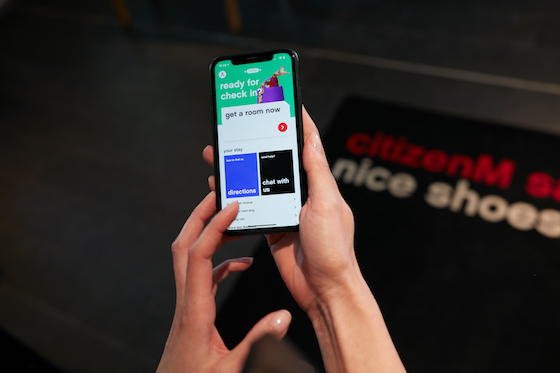March 11: NBA cancels season. Trump announces travel ban. Tom Hanks tests positive for COVID-19.
Since that date, the U.S. hotel industry has been in survival mode – global borders closing, single-digit occupancies, shortfalls increasing – with an ambiguous timetable.
Ernest Lee is head of development and investments for CitizenM in North America; Lennert De Jong is the company’s chief commercial officer.
Uncertainty breeds speculation. And what has filled this particular information void is a narrative that corporate travel, a critical segment for hotels, is forever impaired. CEOs will opt for Zoom over business trips, and people will be too scared to attend large conferences. Overnight, an entire industry was dumped into the clearance bin next to Sears and Blockbuster.
This is what happens with one-dimensional thinking. It’s linear (and lazy). But what happens if you break down corporate travel into layers, looking at every purpose for travel and the potential second- or third-order effects of each?

When this crisis passes, there’s no doubt business travel will be massively different. But what will be different is expected to be better, and stronger, than before. Here’s why.
1. Salespeople are high EQ and competitive creatures. The most effective salespeople have two key characteristics: social intelligence and ego drive. Ever try humor on Zoom? What about sympathy? It never feels right. Also, imagine Omnicom losing an account to Publicis because they pitched over video. How quickly will Omnicom’s CEO require every client meeting to be in person?
2. Business operations will become more spread out. The pandemic and public policy has accelerated the “hub and spoke” office model, China-plus-one (US) supply chains, and foreign outposts due to H-1B restrictions. Decentralized facilities mean even more need for HR, finance, IT, legal — all of which create travel needs.
3. Internal travel will increase as workforces become more distributed. When you can work from anywhere, you will want to live anywhere — many employees will pursue a lower cost of living. Which explains the migration of knowledge workers from major cities to places like Florida and Texas. However, these employees will still crave socialization, collaboration and face time, and will need to visit HQ periodically, staying in hotels during their trip.
4. Hotels will replace offices as startups go remote-flexible. Uber, Airbnb, Square were all founded in the last recession and all were under the old mindset – build an incredible office and talent will work longer and harder. Future founders will adapt to a remote-flexible mindset, which assumes if they bring the workplace to the talent, they will be even more productive. That said, building corporate culture is still far superior in person, which will make the new norm for teams to fly into hotels for biweekly sprints and monthly off-sites. Expect other industries to follow since Silicon Valley is often looked up to as a thought leader in office culture.
5. Bleisure and workcations will be on the rise, and length of stays will increase. Now that work/life balance is restored and parents are spending more time at home, guilt from being on the road too often will decrease. Dropping the kids off at grandma’s house will be a little less upsetting now, so expect that adding a few extra days to that Miami business trip to occur more often.
6. Group travel will be the last to recover but will come back much better. Technology won’t replace conventions, but event planners will use it to make them better. Imagine a decentralized CES expo, one where instead of one giant confab in Vegas there are 10 mid-sized conferences —all happening at the same time in different cities with a virtual bridge. Keynotes broadcast simultaneously, with each city having its own panels and programming. Hotel bookings will become less concentrated but more accessible, possibly attracting more people.
7. Expect an increase in mini conferences. Smaller and more frequent events of under 500 people were already the fastest-growing segment in meetings and events. Now one of its most important attributes – networking – will have far greater value. Picture the D.C. lawyer who used to have drinks or dinner weekly. But during coronavirus, he moved permanently to the Delaware beaches. Rather than driving hours for one-off meetings, he’ll now plan three-day trips, using these recurring events as a linchpin to catch up with many more people at once.
8. Where demand falls short, supply steps in. Expect many hotels converting to other uses, with a wave of municipalities, universities, investors who will buy or lease hotels to address different needs. States like California will convert hotels into shelters, NYU will make them into dorms, while others create residences and private clubs. This will take out, mainly, peripherally located properties and help boost demand in the business districts, as well as shifting demand towards undersupplied areas.
9. Future supply will be stifled. The pandemic will deepen the socioeconomic divide in many cities, which means anti-development and anti-tech sentiment will only grow. This will make new projects more difficult to develop and short-term rental supply more regulated. What’s that, you say? Cities will need to create jobs and tax revenue? This assumes local politics is 1+2=3 logic. Attend a local city council hearing and you’ll soon find out it’s more like 1+2=banana.
10. There are so many new use cases yet to be discovered. The pandemic has given rise to many new corporate travel reasons. Doctors will use hotels to set up hybrid practices, mixing telemedicine and office visits. Education startups will take over hotels for new schooling formats. E-retailers will group together, taking over ballrooms for a pop-up department store.
Overall, the future is as bright as it is uncertain. There is no going back to normal but the next normal seems to be even better.
